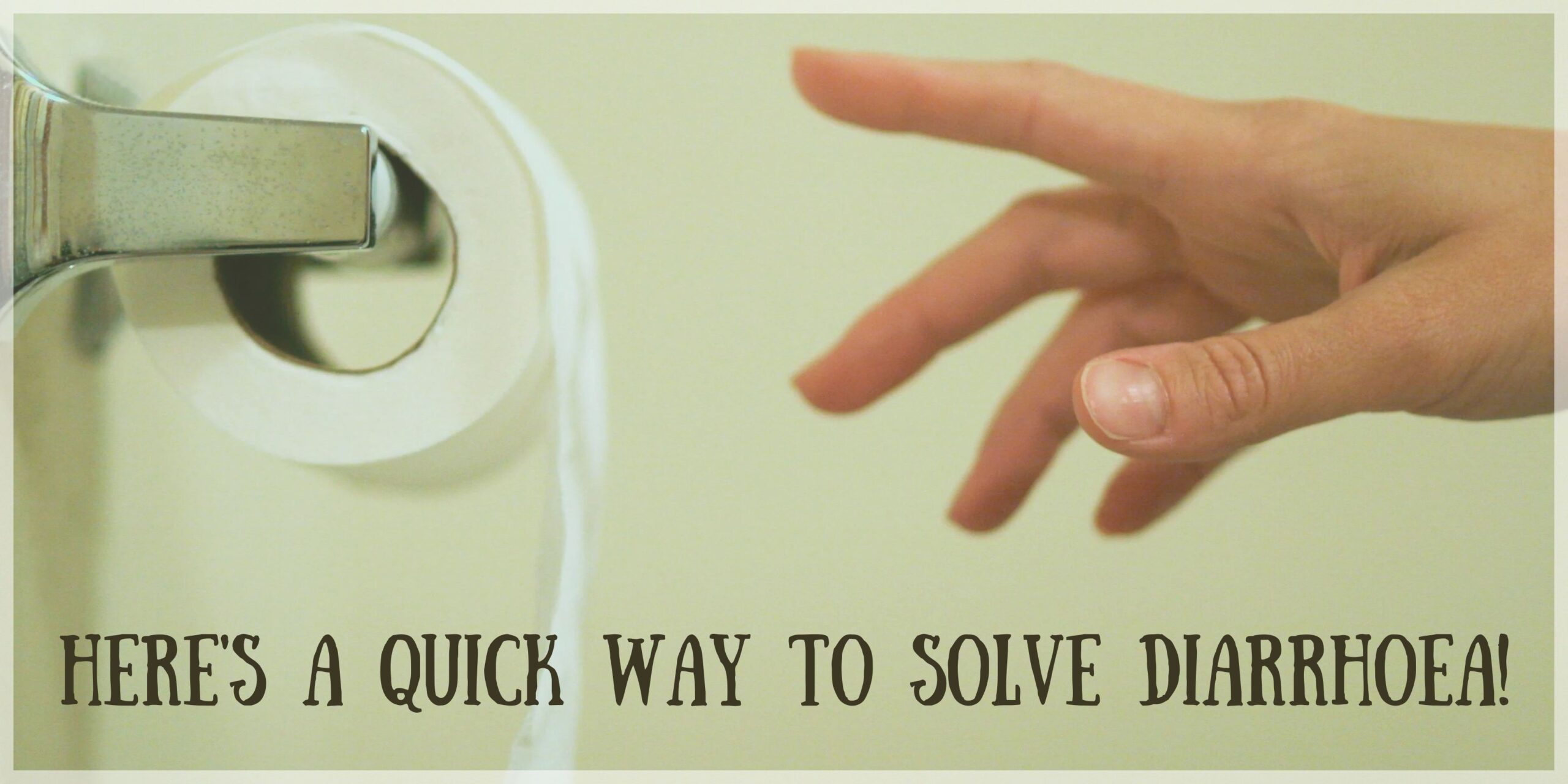
Here’s a quick way to solve Diarrhoea!
The symptoms of diarrhoea, along with causes and treatment, are explained detailly in this post. Diarrhoea is a common health issue characterised by frequent, watery bowel motions. Symptoms such as this one might occur on their own or in conjunction with others. Typically, diarrhoea occurs as a result of a virus infecting your gut, and this condition is referred to as “intestinal flu” or “stomach flu” by some people. Fortunately, diarrhoea is usually transient, lasting only a few days. However, when diarrhoea persists for several days or weeks, it typically suggests the presence of another issue — such as irritable bowel syndrome or IBS, or a more serious ailment, such as persistent infection, celiac disease or inflammatory bowel disease or IBD. Your rectal region might get sore with all the bowel motions that diarrhoea causes. You could experience irritation, burn, or discomfort whenever you get into the restroom. Consider a lukewarm shower or sitz bath for alleviation. After that, use a sterile, soft cloth to wipe the place dry (do not, however, rub). Use a lotion or petroleum jelly on the afflicted region if necessary. An overactive thyroid, often known as hyperthyroidism, is an endocrine system disorder that causes recurrent diarrhoea and weight loss and affects the functions of endocrine system glands. If this condition prevails for more than a few days, you should consult a physician.
Symptoms of diarrhoea
Diarrhoea symptoms include watery stools and a strong desire to go to the bathroom. Diarrhoea can sometimes occur as a result of constipation, particularly in persons with irritable bowel syndrome. The symptoms of diarrhoea encompass abdominal bloating, cramping, and thin or loose faeces. Diarrhoea can lead to dehydration, which can be fatal if not handled. Children, the elderly, and individuals with compromised immune systems are especially vulnerable to dehydration. Seek medical attention if you show indications of severe dehydration. Dark-coloured urine, fatigue, weakness, dizziness, light-headedness, little or no urination, dry lips or skin, and excessive thirst are all signs of dehydration in adults. The sunken appearance of the abdomen, eyes, or cheeks, drowsiness, unresponsiveness, or irritability are all signs of dehydration in newborns and young children. Consuming vitamin B3 although it has significant benefits may lead to adverse consequences such as bloating, diarrhoea, upset stomach, and headache. Crying but not with tears, fever of more than 102 degrees Fahrenheit (39 degrees Celsius), dry mouth and tongue, as well as three or more hours without a wet diaper are the other signs of dehydration in children and infants.
Causes of diarrhoea
Diarrhoea can be caused by various diseases and ailments, including viruses, bacteria, and parasites, to name a few. Certain foods can occasionally cause diarrhoea. Weight loss and fever are some of the symptoms of diarrhoea. Numerous drugs, including antibiotics, can result in diarrhoea. Antibiotics treat infections by eliminating harmful bacteria, but they also destroy beneficial bacteria. This upsets the natural balance of microorganisms in your intestines, resulting in diarrhoea and other gastrointestinal problems. Anti-cancer medications and magnesium-containing antacids are also known to produce diarrhoea. Lactose is a type of sugar that occurs naturally in milk and related dairy foods. Individuals who have trouble digesting lactose experience diarrhoea following dairy consumption. Lactose intolerance can worsen with age, as quantities of the enzyme that aids in lactose digestion decrease with age. Fructose, a naturally occurring sugar in fruits and honey, is also used to sweeten some beverages artificially. People who have difficulty digesting fructose may experience diarrhoea as a result. Additionally, diarrhoea can be triggered by artificial sweeteners, partial intestine or gallbladder removal procedures, or other digestive diseases. As a result of high calcium levels, although vitamin D is beneficial, people who take significant dosages of vitamin D may develop stomach problems, lack of appetite, constipation, or diarrhoea.
Treatment for diarrhoea
To avoid the transmission of infectious diarrhoea, wash your hands. To guarantee proper hand-washing, follow these steps: Frequently wash your hands; before and after making food, wash your hands. Hands should be cleaned after handling raw meat, going to the bathroom, changing diapers, sneezing, coughing, or blowing your nose. Nausea and vomiting are common symptoms of diarrhoea, as is the presence of blood or mucus in the faeces. Cleanse your hands gently for at least 20 seconds after putting soap on them. When handwashing isn’t an option, use hand sanitiser. When you can’t get to a sink, use an alcohol-based hand sanitiser. Apply the hand sanitiser like hand lotion, making sure to cover both hands’ fronts and backs. Use an alcohol-based product that has at least 60% alcohol. Diarrhoea is a common ailment among travellers to places with poor hygiene and contaminated foodstuffs. To lower your risk, keep a close eye on what you eat and drink, consult your physician about antibiotics, and look for travel advisories. Acute diarrhoea usually clears up on its own after a few days without medication. If you experience persistent diarrhoea, gas, or constipation, your immune system may be impaired. If lifestyle modifications and home cures for diarrhoea haven’t worked, your doctor may prescribe drugs or other therapies.